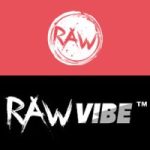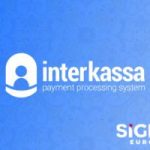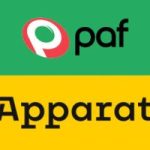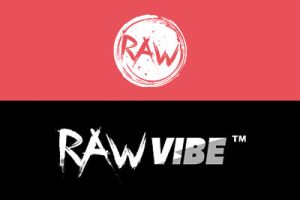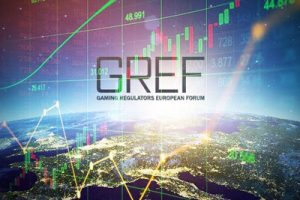
He European Forum of Gambling Regulators (GREF) consists of gaming and betting authorities in some of the most active markets in Europe. The Forum recently outlined a shared commitment to their planning approach the problem of the game across the continent.
A statement issued by GREF describes some of the ways members would work together through cross-border collaboration, including coordinating “joint actions” against what they see fit illegal gambling websites operating in Europe. Each country is free to use its own definition of “illegal gambling”.
Regular meetings and other communications to keep the forum cohesive
Other points outlined include sharing experiences, information and best practices, and setting up alerts so all Member States can be on the same page at the same time when an issue needs to be addressed. The team also explained that the various national regulators would celebrate regular meetings stay informed and up to date.
None of the languages we saw respond Gray Markets – Jurisdictions where gambling operations are not allowed unless licensed locally or sometimes even in another EU member state, but players are free to choose where to gamble. However, some of the participants are actually from countries that are generally considered to be gray markets.
With the arrival of countries like Germany, IrelandThe Netherlands and the Great Britain As part of a regulatory reform, participants in the European gaming industry have addressed the problem of the black market and illegal providers in some discussions.
The GREF statement reads: “This joint action will allow us to better identify and mitigate illegal gambling activity, while recognizing that each regulator is free to define what constitutes illegal gambling and use the enforcement tools provided by its own national regulatory framework.”
“We hope that this joint action will enable a constructive dialogue with online platforms, including social media platforms. We also hope that this joint action will increase consumer awareness of the risks associated with illegal gambling.”
The Belgian Gaming Commission (BGC), l’Autorité Nationale des Jeux (ANJ) of France, Joint Office of Gambling of Germany (GGL), the Hellenic Gaming Commission (HGC) of Greece, the National Lottery Regulator of Ireland and the Great Britain Gambling Commission (UKGC) are among the most prominent members of the forum.
The Irish Department of Justice Ha recently explained including support for the Gambling Regulatory Authority of Ireland (GRAI) [Údarás Rialála Cearrbhachais na hÉireann]
in its 2023 Justice Plan to continue the work begun in 2021 Repeal of existing gambling legislation in Ireland and replace it with a modern framework that deals with betting and gambling both land and online.
The Irish Department for Justice and Equality is a member of the Forum, as is the Finnish Department for Social Affairs and Health. Both government agencies were heavily involved in the Promotion of new regulatory frameworks in their countries.
GREF: Unlicensed operators put consumers at risk
As one voice, forum members claim that “illegal gambling” (as defined by each member state) undermines the development of a Fair Game Marketas well as consumer protection.
“With these considerations in mind, we commit today to act collectively against illegal gambling to ensure the effective implementation of our national regulations.”explained the organization.
Germany’s fledgling regulator, the GGL, said in taking responsibility for regional “placeholders” that it would create and implement strict standards would aggressively pursue unlicensed businesses offering gaming or sports betting opportunities in the country.
The KSA of the Netherlands Ha recently strengthened enforcement actions against licensed providers who break the rules, as well as foreign gambling websites that they believe are targeting unlicensed Dutch players.
However, not all regulated stakeholders agree where the strictest rules and enforcement apply best for gamers.
Accordingly a PwC investigation Provided to the UK Betting and Gaming Council (BGC) in early 2022, UK players using unlicensed gambling sites have more than doubled in just two years. The number rose from 220,000 to 460,000 during this period. PwC estimates that the amount wagered on unauthorized online websites in the UK is in the billions of pounds a year.
The report states: “This analysis suggests that the UK has a more “open” online gambling market and currently has a lower unlicensed market share than our European benchmarks.”
“While it is not possible to isolate the impact of individual regulatory features, the above assessment suggests that countries with higher unlicensed market shares tend to exhibit one or more restrictive licensing or regulatory features.”
Referring to the long awaited UK match reportsaid BGC CEO Michael Dugher: “We support Game Review, but there is a real risk that this will result in a smaller regulated industry and significant growth in the illicit black market.”
“This investigation clearly shows the dangers of the black market, we must learn our lessons from abroad and make the right decision at this dangerous crossroads.”
Strict regulations can drive players to black market sites
However, the PwC report did not stop at the British borders and examined several other European countries. Found the following:
According to what Norway created a state monopoly and restricted all betting, affordability controls and advertising restrictions, the black market grew to over 66% of all betting.
The country’s DNS blocking plans to keep Norwegian players on state-sanctioned sites recently took a hit when it was found that landing page searchers were being redirected to the Norwegian Lottery Authority’s website, which did not meet national privacy standards.
Norway currently enjoys a 100/100 rating house of freedom with 40/40 for political rights and 60/60 for civil liberties. It is unclear whether DNS blocking would affect this score.
In France57% of all money wagers are made on unlicensed websites and not on France’s state monopoly gambling portals.
Advertising for betting and gambling is strictly prohibited Italybut the black market accounts for nearly a quarter of all money gambled online, according to the report.
The report did not specify the percentage of unlicensed gambling that took place prior to the increase in regulatory restrictions.
But he also noted that Spain has placed 20% of all bets on unregulated sites since a 2020 Royal Decree severely restricted all gambling advertising in Spain. The BGC claims that these numbers are due to players not having access to safe betting information due to the advertising ban.
in 2020 Denmark Restrictions have also been imposed on licensed traders, banning deposit incentives such as match bonuses, while the Danish tax authority warned of a potential 9% increase in black market share.
In Sweden38% of self-excluded players who chose to close their accounts at locally licensed operations were still able to gamble online at unlicensed operators in Sweden.
Spring: Cross-border regulator Gref outlines black market strategySBC News, April 11, 2023

